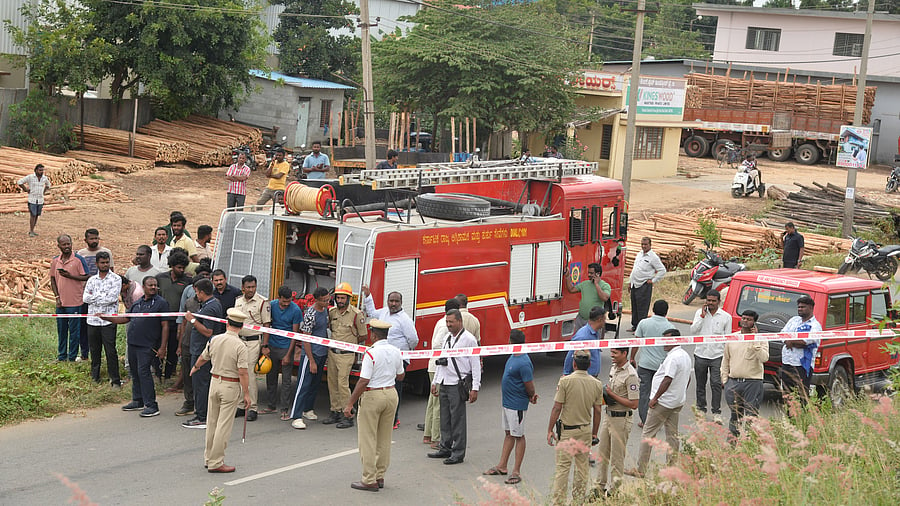
Image showing a fire engine in Karnataka.
Credit: DH File Photo
Karnataka is facing a daunting challenge with only 35% of its firefighting fleet operational, as 443 vehicles, including fire tenders, water bowsers, and specialised units like Varuna jeeps and Agni bikes, are set to be retired under the government’s policy to scrap vehicles that are over 15 years old. Though about 80% of the vehicles are in good condition and fit for service, they are being decommissioned in line with the policy aimed at curbing pollution and enhancing road safety. This has sparked serious concerns within the Karnataka State Fire and Emergency Services (KSFES) as the department will now operate with a significantly reduced fleet during one of the most fire-prone seasons of the year.
Assurances from the department that accident responses will not be compromised, as at least one fire tender will remain at each fire station, have been met with scepticism, with former officers and activists warning of a “high risk scenario”. In the event of a major emergency, fire engines will have to be deployed from multiple locations, leading to crucial delays that could prove disastrous. Environmentalists have also raised concerns over the threat of forest fires, especially in vulnerable areas like Biligiri Ranga Hills (BR Hills), Mudigere, and Chikmagalur. While human negligence and arson are major triggers for these fires, the problem is compounded by extreme heat during the summer. Further, there is the threat of urban fires. Bengaluru has already experienced three major fires in the recent past, including one at a government-run bioinnovation laboratory that resulted in a loss of Rs 150 crore, and another in Srirampuram where 150 vehicles parked in an open ground were gutted. The Indian Meteorological Department (IMD) has predicted severe summer conditions, underscoring the urgency of a more robust fire-fighting infrastructure.
When the policy to scrap old vehicles was introduced, the then head of KSFES, Kamal Pant, proactively wrote multiple letters to the state and union governments, requesting exemptions for fire department vehicles. However, his appeals fell on deaf ears, leaving the department in a precarious situation. The government’s delay in procuring new vehicles ahead of implementing the scrapping policy has placed Karnataka’s fire safety at risk. With predictions of extreme heat this summer, the government should extend the service life of existing vehicles until the new fleet arrives. The current situation underscores a lack of foresight and highlights the need for proactive planning to safeguard lives, property and environment.
